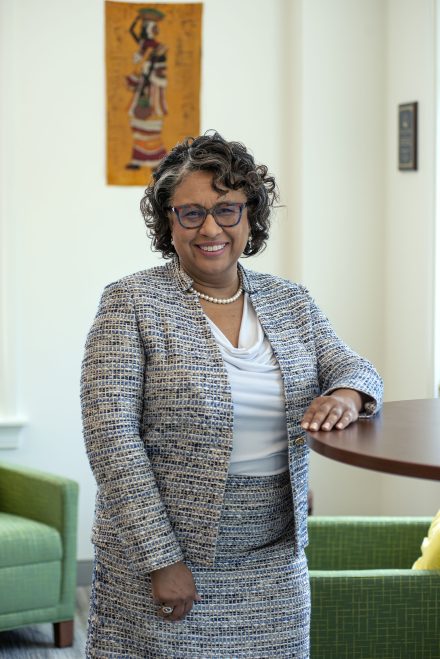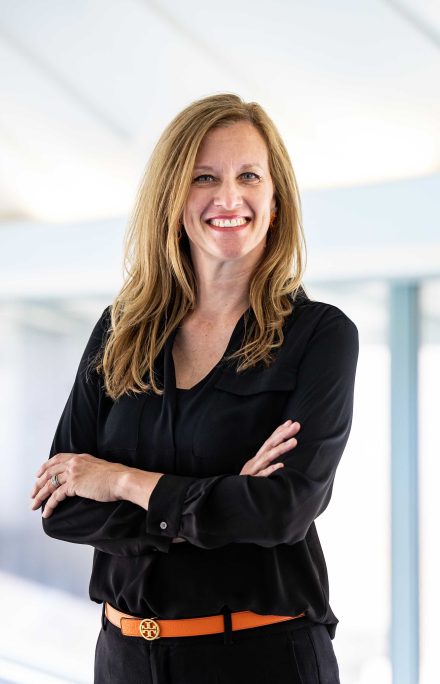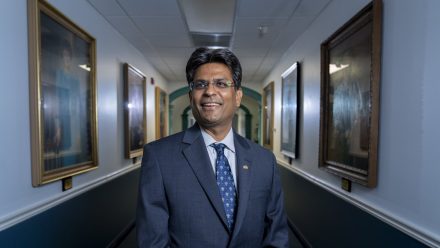As three campus leaders start service as presidents of other institutions, President Connie Ledoux Book reflects on Elon’s role in building a stronger system of higher education and impacting college students beyond our campus.
June weddings had me returning home this summer to a very hot Baton Rouge, Louisiana, to take my 85-year-old mother to celebrate (“fete”) the wedding of a much-loved great niece. Cajun weddings are a lot of fun, full of tradition and, as they say, “Laissez le bon temps rouler!” Let the good times roll!

At the wedding, my mom told me she had an “envie” for a little taste of the wedding cake. Envie (pronounced “anh-vee”) is a common expression among the Cajun people to describe when someone has a desire for something. It could be an envie for food or something that belongs to someone else.
Elon experienced the “envie” of other colleges and universities this spring when three of our campus leaders were selected to be presidents of other institutions. I’m confident that no other university in the nation will launch three college presidents in the span of just a few months.
Rochelle Ford, dean of the School of Communications, was selected as the eighth president of Dillard University in New Orleans. Becky Neiduski, dean of the School of Health Sciences, was selected as the 18th president of Wartburg College in Waverly, Iowa. And Aswani Volety, provost and vice president for academic affairs, now serves as the seventh chancellor of the University of North Carolina Wilmington. We wish them all well as they assume their presidencies.
Choosing the next CEO of any organization is a critical task, and in higher education the process typically involves several stages of interviewing. As part of this, board chairs, search consultants and trustees often reach out to learn more about the work of the finalists on their home campuses. It was during these conversations that I more fully understood the Elon “envie” other colleges had and why campus leaders and search committees were seeking Elon leaders to become their next presidents.
I’ll focus on three key attributes that were mentioned during these phone calls: Elon’s student- centered culture, tradition of innovation and commitment to strategic planning (but what they really meant was strategic execution).
Hands down, Elon’s core strength is its student-centered culture. When making any decision we ask ourselves, “How will students benefit from this?” Our community of faculty and staff support each other in the work we do with students, providing important sounding boards and helping hands when needed. An employee fully understands that if a student is in need, we set aside the work we are doing to assist that student. Part of everyone’s work, no matter their title, is engaging with students when the opportunity presents itself. Every role — from the library, to landscaping, to instructional technology, to the classroom — supports students. As a result, our students succeed at greater-than-predicted rates.

Elon University is bold enough to believe that each day presents an opportunity to innovate practices and become a more effective university. This innovative culture has been recognized by our peers, and U.S. News & World Report ranks Elon as one of the nation’s most innovative universities. I like to say Elon’s humble spirit keeps us innovative. It’s captured in the phrase, “Elon’s got Elon’s back.”
We have the powerful responsibility that comes with being an independent, private college. In other words, we decide, and in doing so, ensure our future. This keen sense of ownership of our destiny keeps us boldly planning our responsive future. It is exciting to see change literally coming up out of the ground in our new Innovation Quad. No wonder other colleges want to replicate Elon’s well-established innovative culture in these challenging times.
Another Elon quality that other colleges have an “envie” for is what they called strategic planning — or better yet, the execution of our strategic plans. When you invite a community of learners to determine the next series of successes to invest in — and that process is inclusive, creative and built around a mission everyone holds deeply — you can literally achieve anything. One of my favorite lines in the Elon Commitment strategic plan case statement was its closing observation that our community had imagined a new future for the university and now we would set about building it. And we did.

Everyone participates in building the plan, everyone can see themselves in it and the strategic plan touches every aspect of what we do. Setting annual goals, with names of employees and units on campus associated with each objective, keeps us focused on how we move forward together. That’s the strategic execution that other universities are hoping to achieve and is the difference maker in Elon’s continued strength.
We are pleased to launch these three new presidents and respond to the Elon “envie” in higher education. As more universities embrace the effectiveness of our student-centered model, we will see better outcomes for students across the country. We couldn’t be prouder of knowing that Elon’s success is building a stronger system of higher education and impacting college students beyond our campus. Ca c’est bon. That is good.


